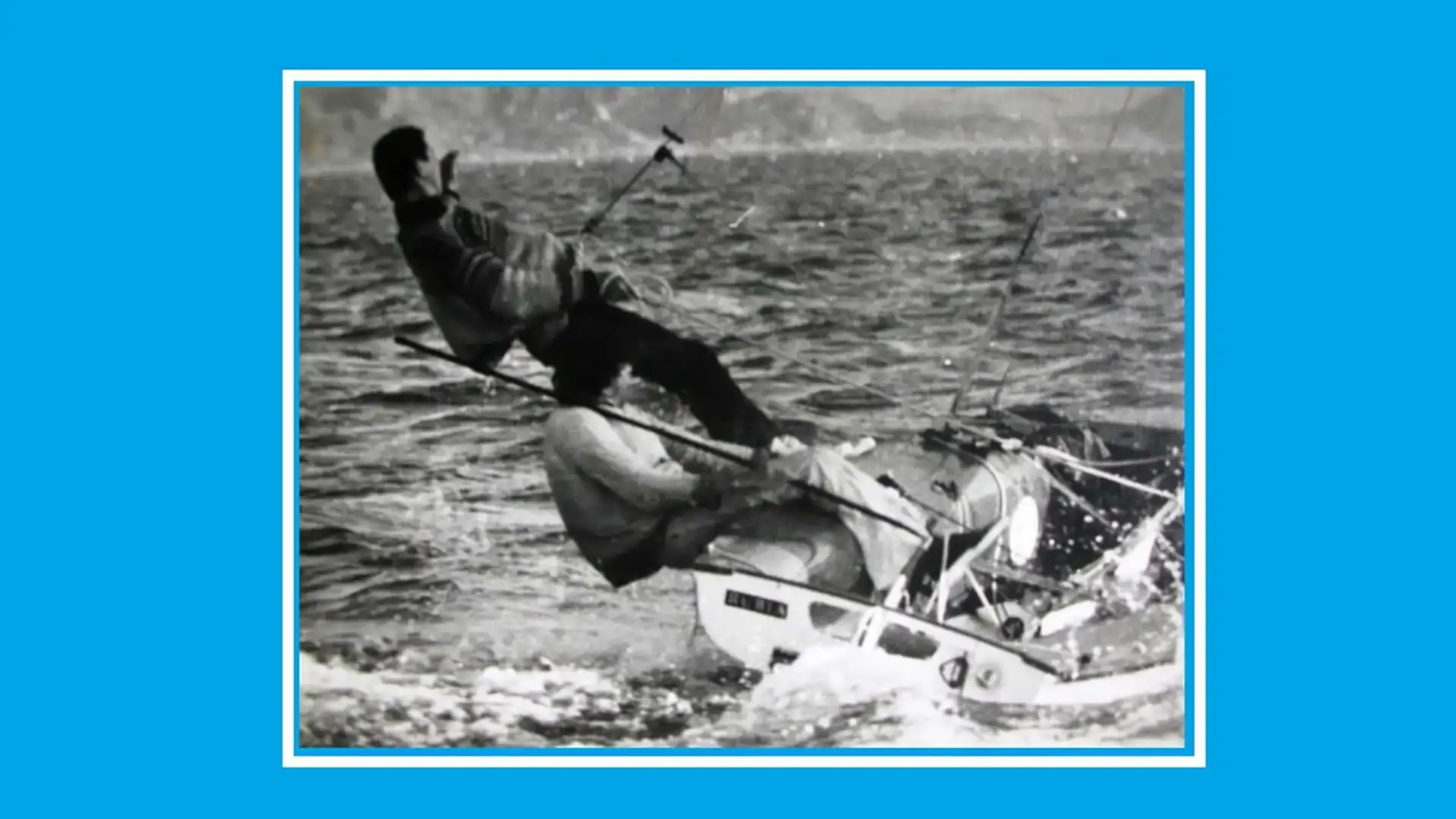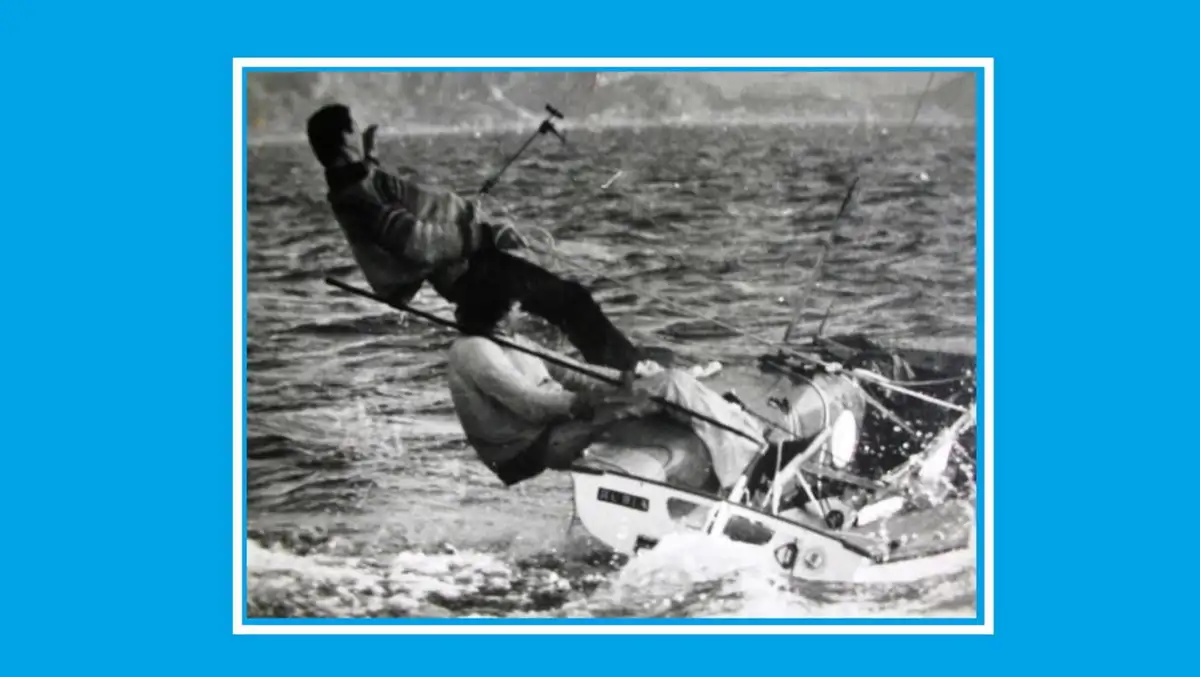
Gorostegui and Guillermo Ópez- Alonso in the middle of the water of Santander (Photo Archivo Real Club Marítimo de Santander)
We spoke of 1976, we remember those moments when the feat of Gorostegui and Millet, because the feat broke the one that we came almost always from an Olympic Games of emptying. The Spanish on foot remembered the bronze in Hockey on the grass of Rome and little more,... the primordial silver medal in sail through the 470 formed by Antonio Gorostegui and Pedro Luis Millet, becoming a great date for the Spanish candle on July 27, 1976. Many years have passed since in 1932 Santiago Amat won the first medal for national sailing in Los Angeles and today, in Kingston, Canada, we have made our second. A magnificent achievement thanks to the path undertaken by Miguel Company, President of the Royal Spanish Vela Federation in the 70's and 80's. For greater glory, the whole ship is national as the hull and candles have been built by our own nautical industry.
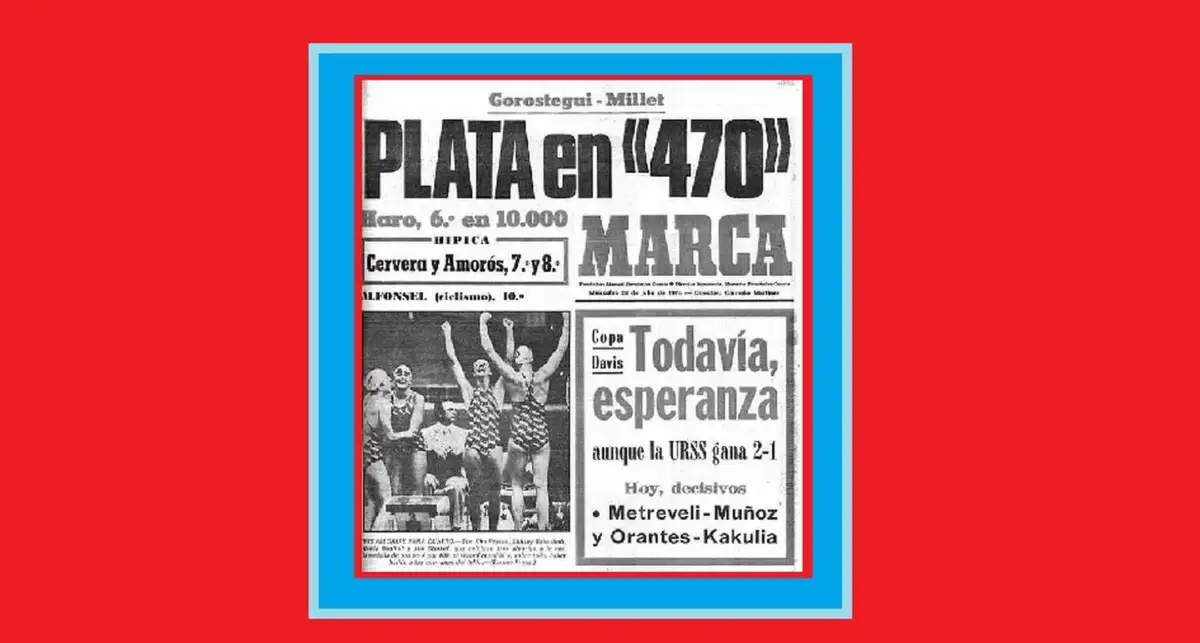
For Spain, the achievement of Gorostegui and Millet was a notification. Proof of this cover in Marca (Marca File)
The competition met expectations and the Spanish couple surprised many of those who were, at the beginning, favorite couples to take the Olympic medals. 28 boats to fight for the medals for 7 suffocating races and, among them, as always in all international races, the federal Germans (Huebner and Bode) the USSR (Potapov brothers) New Zealand (Paterson and Bennett) etc. In the first races, the 1002 boat of Gorostegui and Millet was located at the 4th, 8th, 2nd and 5th places, being an unbeatable first place with 35 points, followed by the German Federal Republic, USSR, Brazil, Australia and France.
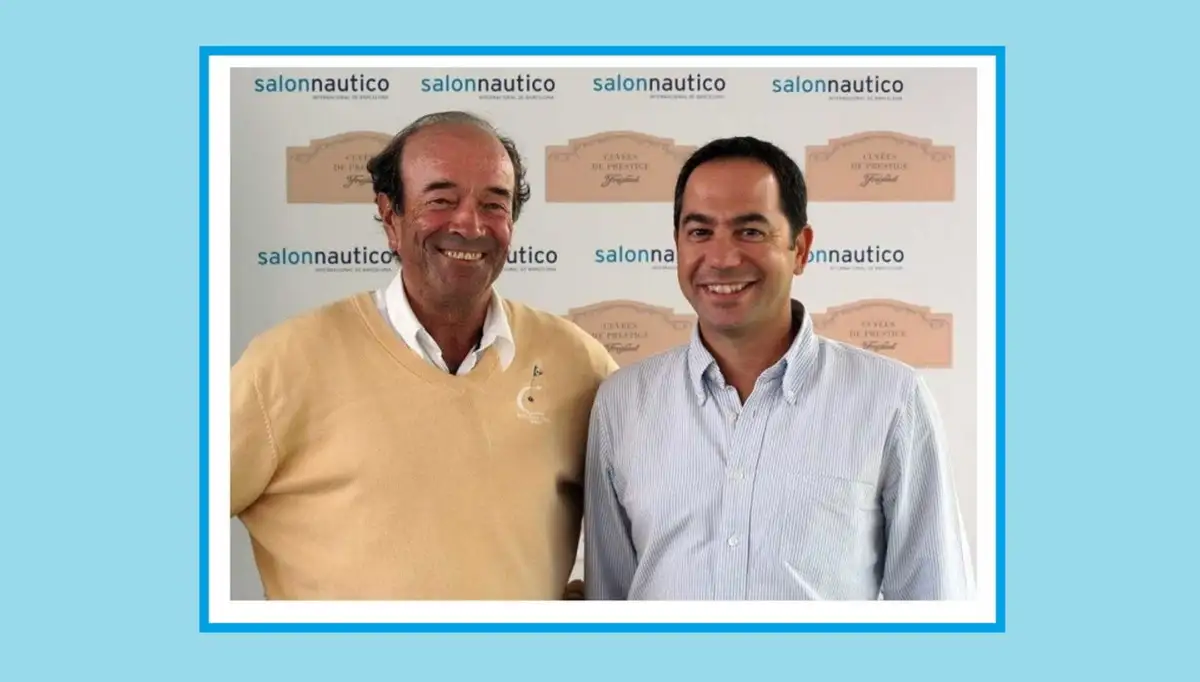
Toño Gorostegui and our collaborator Jaume Soler in a Nautical Hall in Barcelona (Photo Alfred Farré)
In the fifth race, Huebner and Bode won for Germany and with the third place of Gorostegui-Millet, Spain managed to maintain the leadership with only 1.7 points of difference. The USSR was also close (at 10.3 points) while the rest of the ships failed. Two races to finish and the medals were being decided. It became essential to "not fail" in either of those two races that remained to be disputed. In the sixth manga, Australia presented its credentials to reap medal, winning the Brown-Ruff couple. The USSR remained 4th, Spain 7th and Germany 23rd, reclassified after a first disqualification and obtaining its worst result from all the competition. So, Spain was still a leader ahead of the USSR and Federal Germany,..., despite that and for our partner to take the gold, the RFA had to be left in the 7th or worse place, something very complicated... but not impossible. This is how we reach the last race, which today has been held in Canadian waters with a strong wind (15 knots) and waves more than half a metre high that have put the Germans Huebner- Bode in front, taking the race without problems and therefore a deserved gold medal. Spain, the Spain of Gorostegui and Millet, has had a quiet regatta, without outstripping and have harvested a comfortable 5th final stand with which they have taken a glorious silver medal. Australia has remained 4th and has managed to take the bronze from the USSR, with the same score but better results (Australia won race number 6). The Soviets have accused the strong wind and the greatest pressure and have not had their best performance, ending the race in the 13th place.
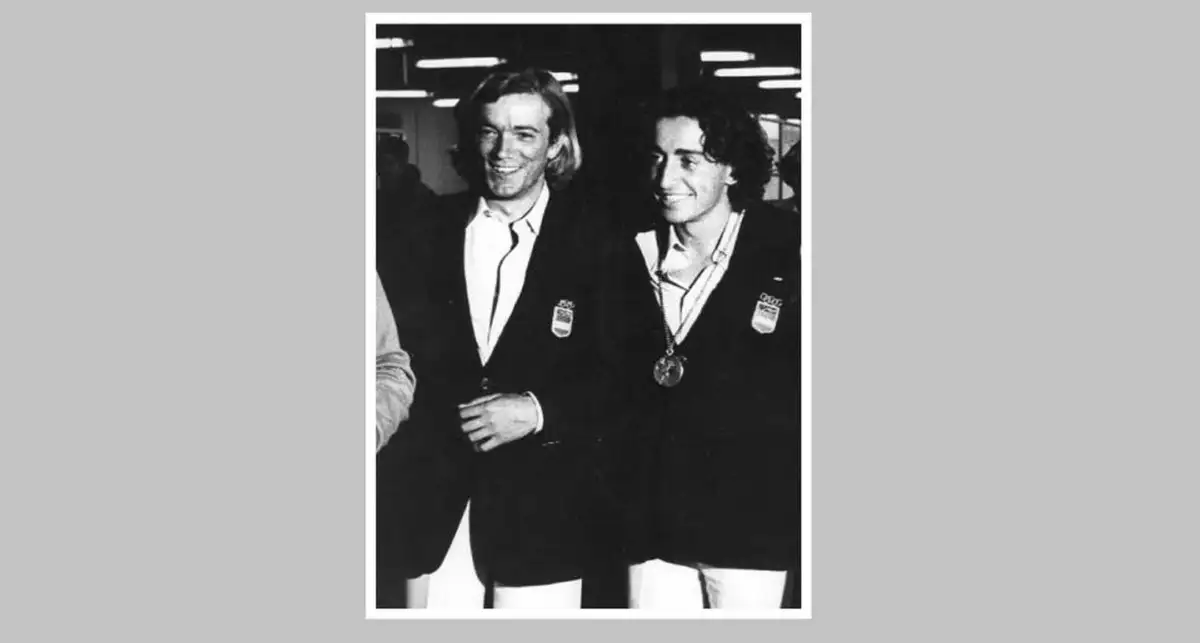
Image by Olympic Glories, the photo is by Joaquín Ameste of El País of 1976. Gorostegui and Millet on their arrival from Montreal to Barajas Airport in Madrid
The excellent regularity and the great good make of this splendid couple of Spanish sailors offered, for our harvest, the first medal then of the Olympic Games in Montreal 76, a medal that for a very little has not been accompanied by another that seemed safe for the Spanish medallion, that of Abascal and Benavides in the Flying Dutchman class that, after having the medal at hand, a break of stick has deprived them of the Olympic glory. Jane Abascal would get the gold in Tallín, four years later, having Noguer as a partner.
Text: Fran Ortiz (Olympic Glories)
© 2024 Nautica Digital Europe - www.nauticadigital.eu
